Movie Review – Triangle of Sadness
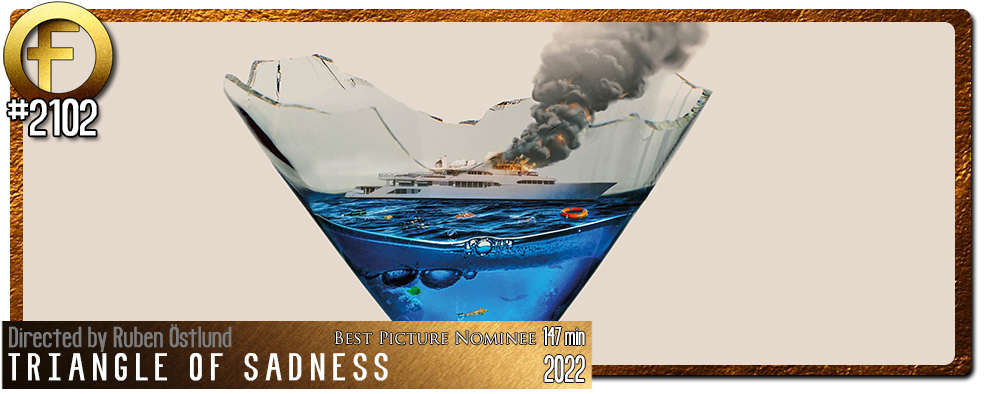
Principal Cast : Harris Dickinson, Charlbi Dean, Dolly de Leon, Zlatko Buric, Iris Berben, Henrik Dorsin, Jean-Christophe Folly, Amanda Walker, Oliver Ford Davies, Sunnyi Melles, Woody Harrelson.
Synopsis: A fashion model celebrity couple join an eventful cruise for the super-rich.
********
Although it loses its way badly in the third act, Ruben Ostlund’s biting, acerbic satire of ultra-wealth and insta-fame is a supremely made odyssey into absolute madness that will delight some, infuriate others, and offend plenty more. Told with a distinctly auteurist vision, from a terrific script and a superb ensemble performance, Triangle Of Sadness‘ dark subtext speaks to those both with and without financial security; in today’s influencer culture, and alongside the widening gap between the haves and have-nots, the film rings with a prescience and truth that will work remarkably for those willing to submit to its vomitous charms.

Rising male model Carl (Harris Dickinson) and his influencer girlfriend Yaya (Charlbi Dean) are invited aboard a luxury yacht somewhere in the Mediterranean, ostensibly to build their profiles for their many social media followers. Aboard the multimillion dollar vessel, they meet Russian oligarch Dimitry (Zlatka Buric) and his wife, the ship’s strict First Officer (Iris Berben) and whacky Captain (Woody Harrelson) for an incredibly extravagant party – only for it all to go horribly wrong. A massive storm on the evening of the Captain’s Dinner causes a large contingent of the passengers to become violently seasick, and poorly cooked food also invokes gastric issues in many of those aboard. Then, just after sunrise, the yacht is attached by pirates and sunk, leaving a handful of survivors struggling to survive on an isolated island beach, ship’s toilet manager Abigail (Dolly de Leon) the only one able to catch food or make fire, which leaves her the most important person in the group.
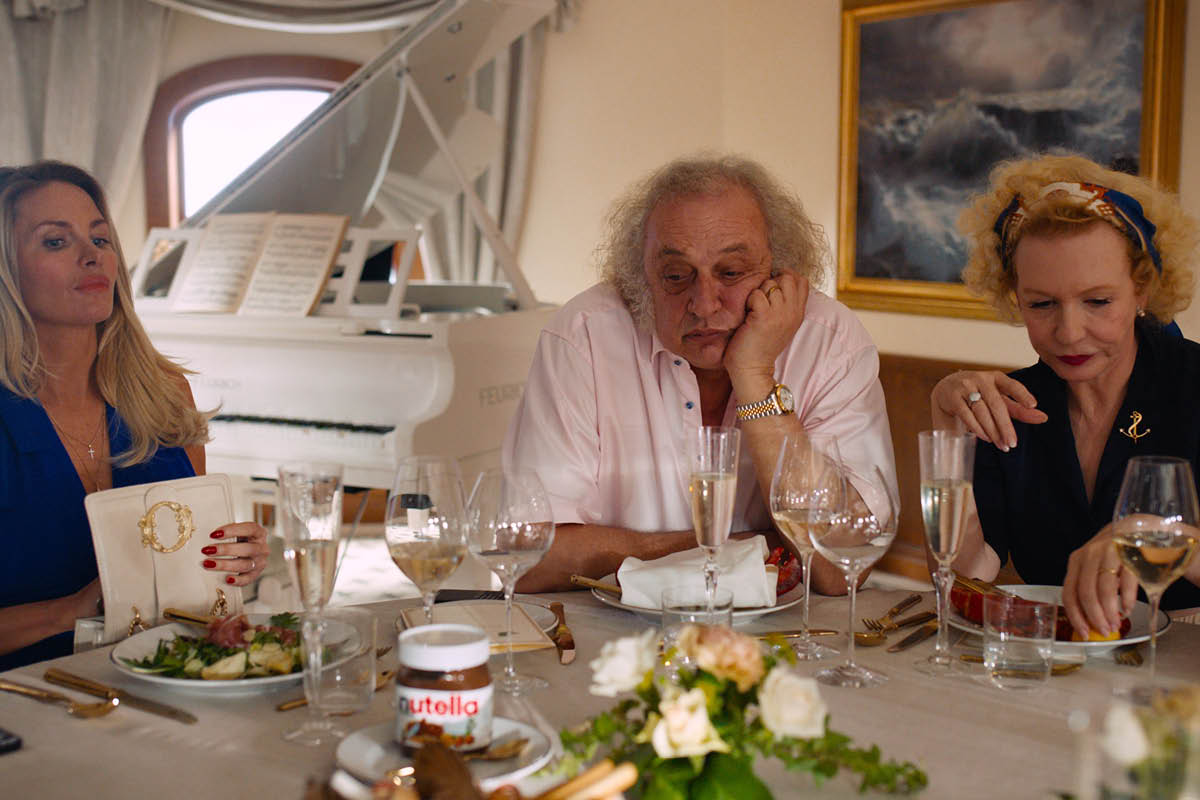
For two thirds of its running time, Triangle of Sadness is a blistering, pitch-black comedic take on the absurdly wealthy. The film’s in-principal leads, Harris Dickinson and the late Charlbi Dean (the young actress sadly passing away in 2022 from a sudden illness), are terrific as the vacuous, inane young millennial ingenues, personifying the Beautiful People we’ve come to appreciate from the countless Instagram influencers permeating our culture, and while they kinda become background noise by the film’s midpoint, ironically they remain our entry point into this mad, mad world. Carl is an idiot, Yaya is a shallow, indolent child of her good looks opening many doors for her career, and they both form a perfectly bananas union as we venture onto one of the worst luxury cruises you’ll ever see.
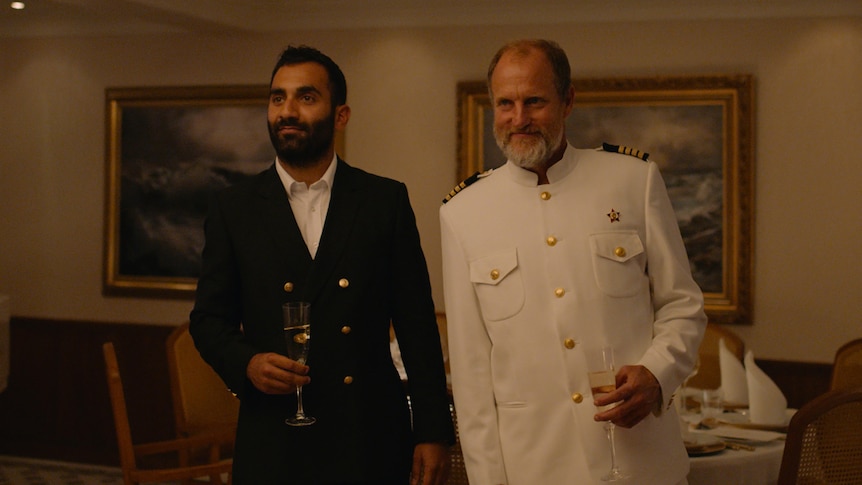
The film is divided into three separate acts; part one, “Carl and Yaya”, introduces us to the pair’s fractured on-and-off-again love affair. Part two, and the film’s singular triumph, is “The Yacht”, an absolute hoot of shenanigans that will have you squealing in equal measure with delight and disgust. The third act, with the various survivors of the pirate attack stuck on an island, is a protracted re-examination and not-as-clever-as-it-thinks-it-is dissection of the previous two parts, flipping power structures on its head and, unfortunately, running the film into the ground. Had the film concluded at the end of the second part, I’d have considered it a minor masterpiece, and the story told would have been uproariously profound in almost every way. The third act tends to list badly towards improbability a little too heavily, and almost always feels like it belongs in a different film. Sure, it has its moments, but I think the last third of the film is easily the least interesting – the film tries for a bit of a gotcha at the end that didn’t quite work for me, and some parts of the dialogue in the back end is a touch silly and on-the-nose in trying to make its point. That said, the first two acts are simply brilliant, both at a structural level and a visual stringency that makes for a compelling, cringeworthy dissection of vacuous wealth.
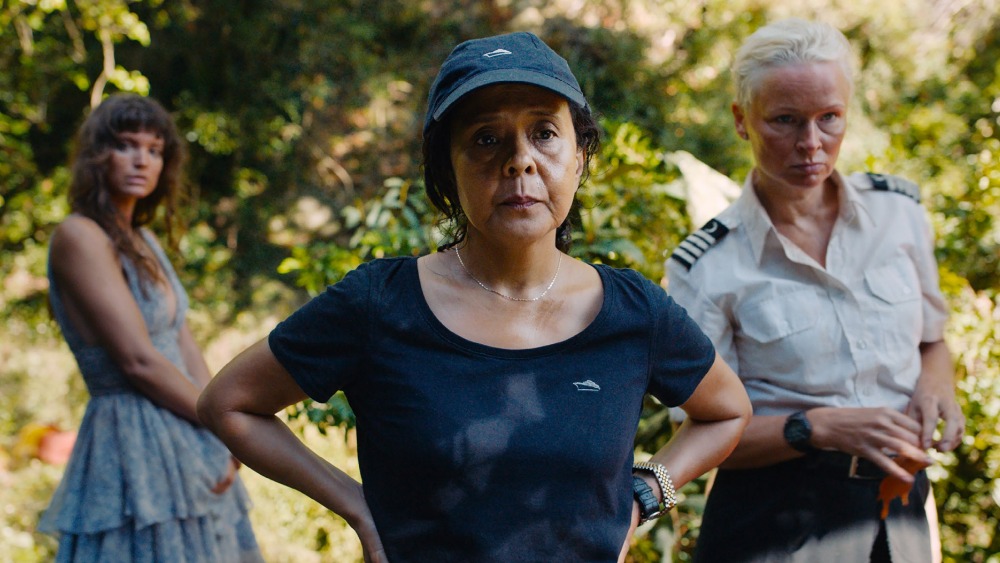
A whole sequence involving the ship’s passengers becoming violently ill is played out in excruciating and near-pornographic details, as vomit, diarrhoea and blood spray across the screen amidst the Michelin-star food presentation and an almighty heaving storm outside. Arguably the centrepiece of this well constructed Capitalist mishap, Woody Harrelson’s Captain and Zlatko Buric’s garrulous Russian oligarch spend the time delivering remarks on everything from Communism, Marxism, socialism and all manner of other -ism’s, juxtaposed by the collapse of the ship’s civility in the face on an onslaught of spew and shit. It’s disgusting, but then that’s the point, and you can’t help but be in awe of Ostlund’s balls for putting some of this stuff on the screen.
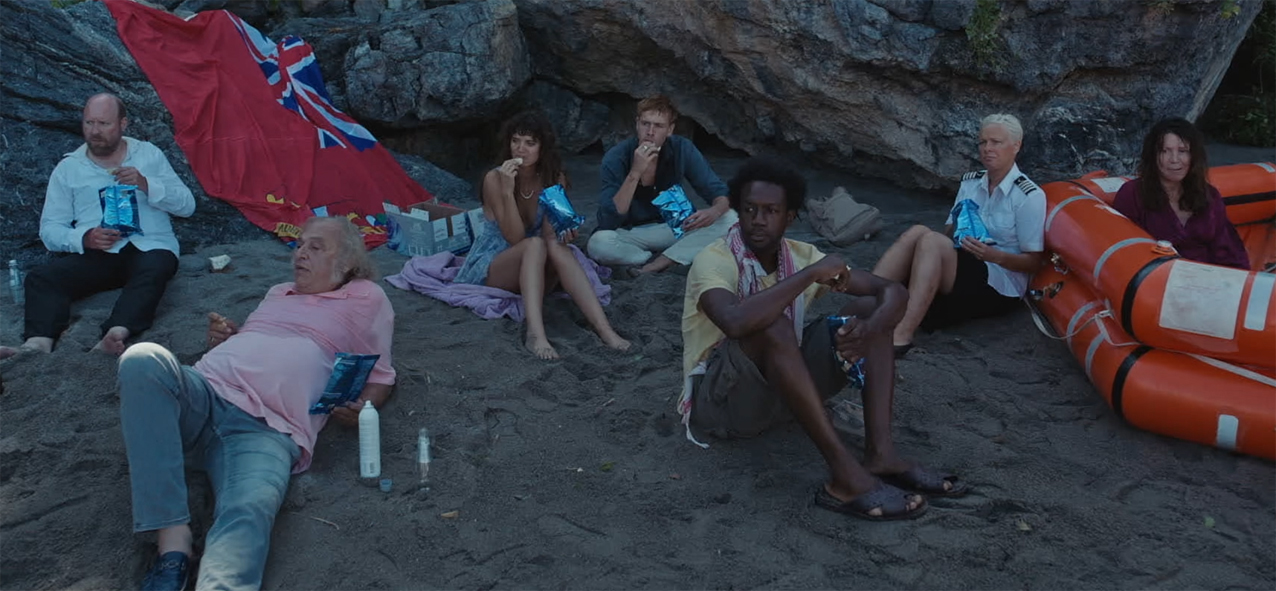
At times, Triangle of Sadness threatens to become a piece of filmmaking genius. It’s superbly written and brilliantly acted by everyone, especially Harrelson, Charlbi Dean and Zlatko Buric. The production design is suitably lavish, and the film’s visual effects are well handled in most respects. But a major misstep in forgetting to stop before we’ve all had enough – perhaps ironic considering the hedonism on display throughout the film – crucially undercuts the opening two thirds, with an ending that’s sour enough to matter but hardly enjoyable enough to care. A dichotomy of populist discussion and filmmaking hubris that has to be seen to be believed, Triangle of Sadness is a nearly-great film that loses its way at the end.
